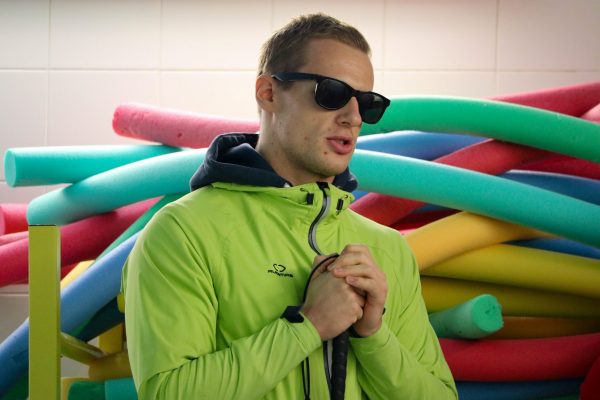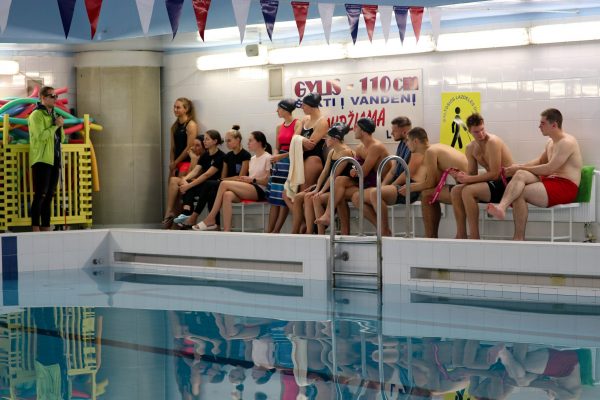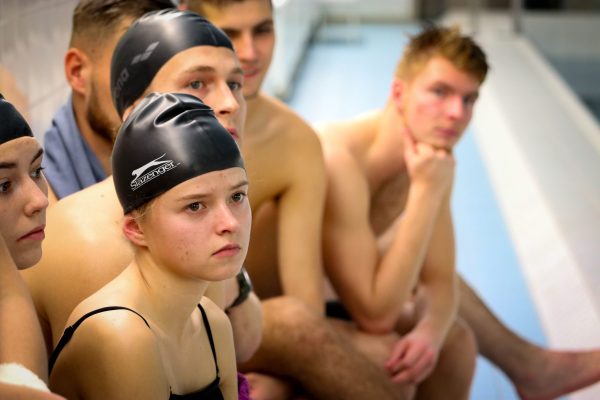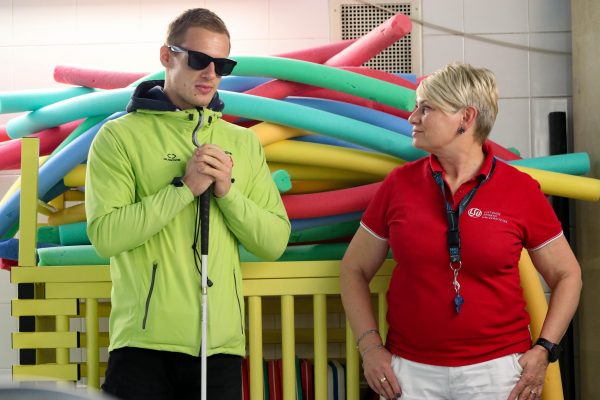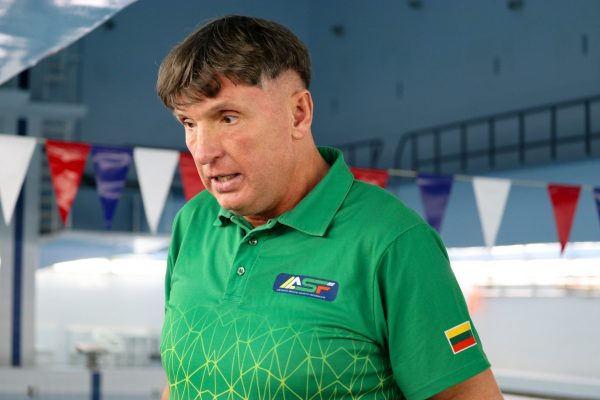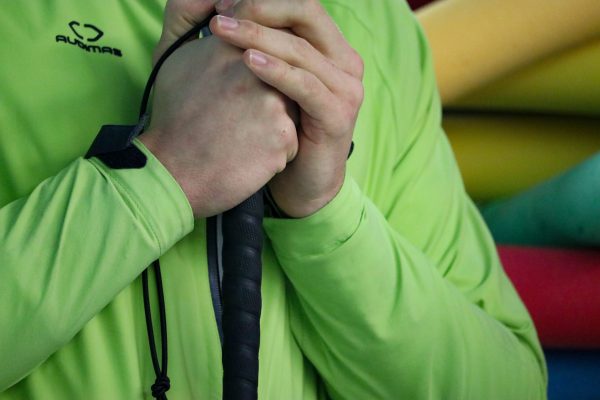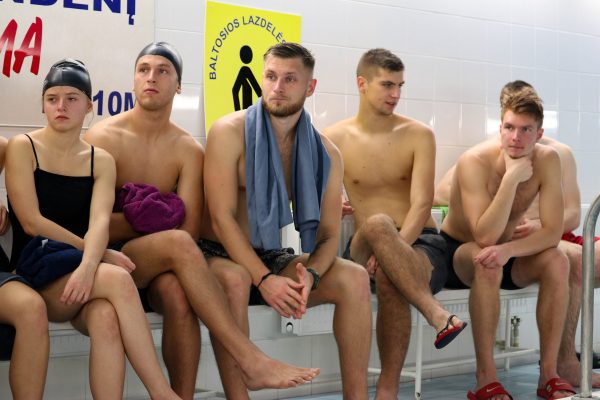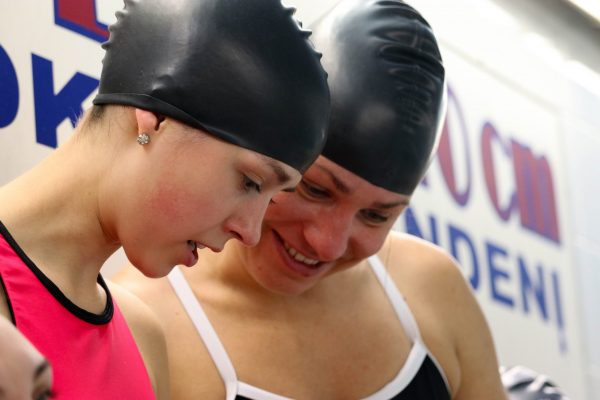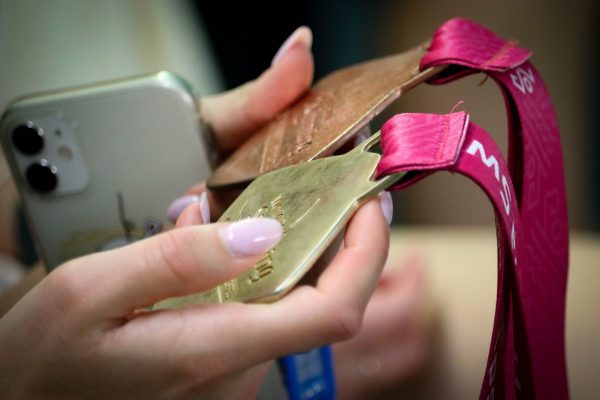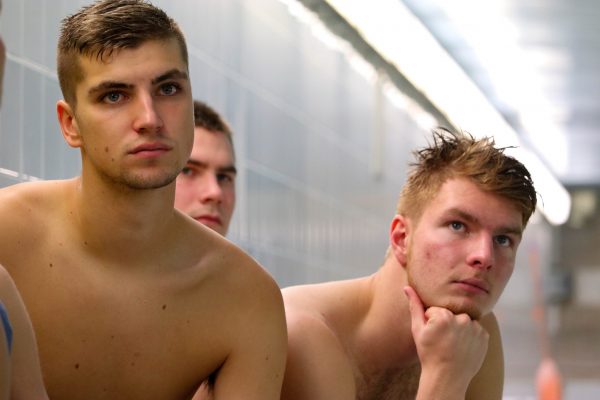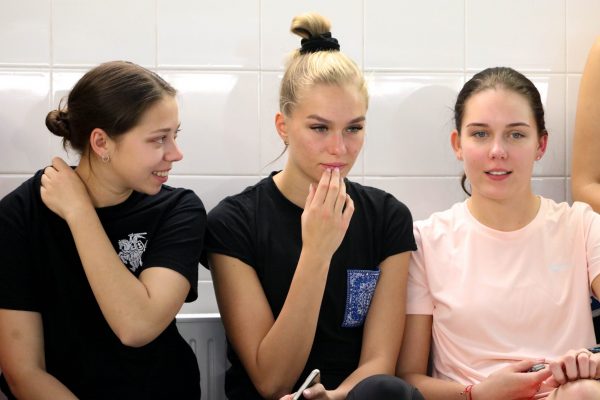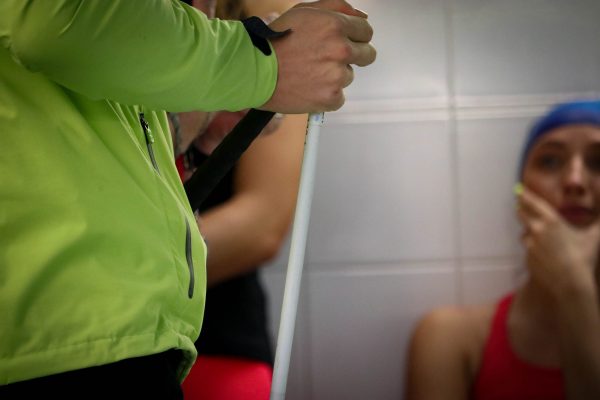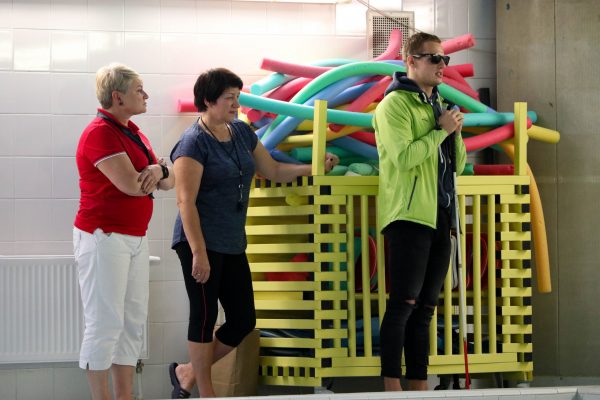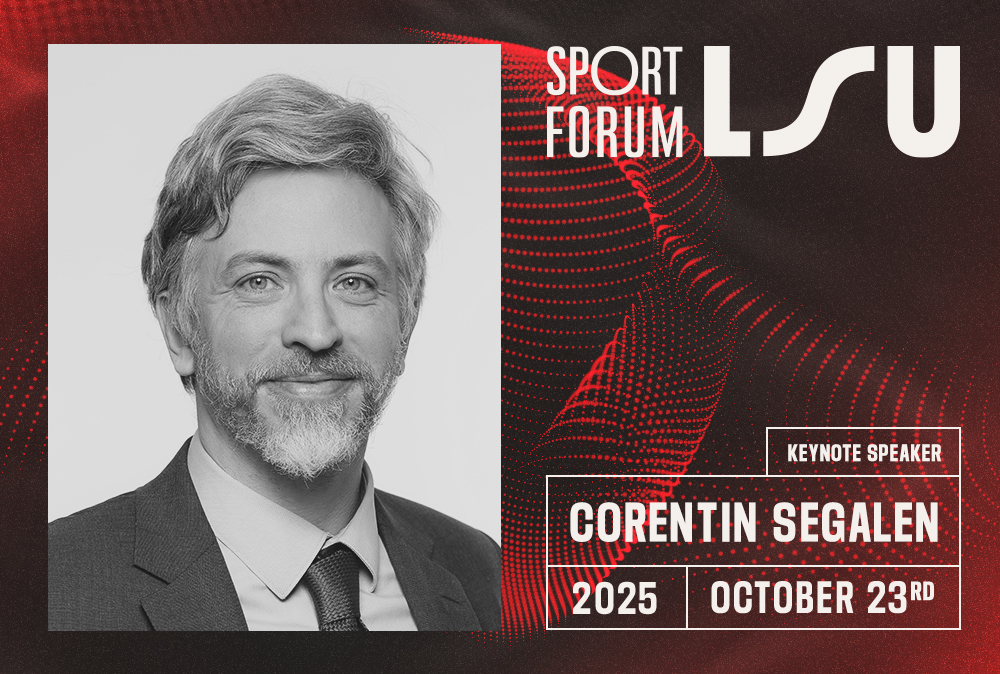The second-year students of Lithuanian Sports University (LSU), Assoc. Prof. Dr. Ilona Judita Zuozienė and the President of the Lithuanian Blind Sports Federation Juozas Miliauskas celebrated the White Cane Safety Day together with the world and Lithuanian blind champion swimmer Edgaras Matakas. E. Matakas, a fourth-year student of the LSU Coaching Science study program, shared his thoughts on swimming, the victories won, his fears and future goals in a lecture organized in the university swimming pool.
“While studying at this university, I can combine sports and professional careers. I am glad that the university environment is adapted for the disabled, and the teachers help to overcome all difficulties,” said Edgaras.
The athlete who spends most of his life swimming says that it is not easy to combine studies and a sports career. Edgaras is motivated to move forward by the desire to achieve the very best results. “When I jump into the water, I have only one goal – to be the best. I want to be a person as good in swimming as possible. I know that some swimmers give up their dreams at the halfway point of their careers,” said Edgaras.
E. Matakas is now intensively preparing for the upcoming Tokyo Paralympic Games. Athletic and swimming coaches improve nutrition, workout and rest plans. “My main goal is a medal won at Tokyo Paralympic Games. I exercise a lot and enjoy doing what I do,” said the athlete, who also participated in the Rio 2016 Paralympics.
On the occasion of the White Cane Safety Day, Edgaras encourages everyone to go in for sports and pursue their goals. “This day is meant for reminding the public that there are people who fulfil their dreams even though they are disabled. They don’t complain and don’t give up. We should all be more physically active,” said Edgaras.
The White Cane Safety Day is celebrated annually on October 15th. On this day, various events are organized to draw the public’s attention to the problems of the visually impaired and to inform them about the causes of visual impairment in order to prevent the disease.

